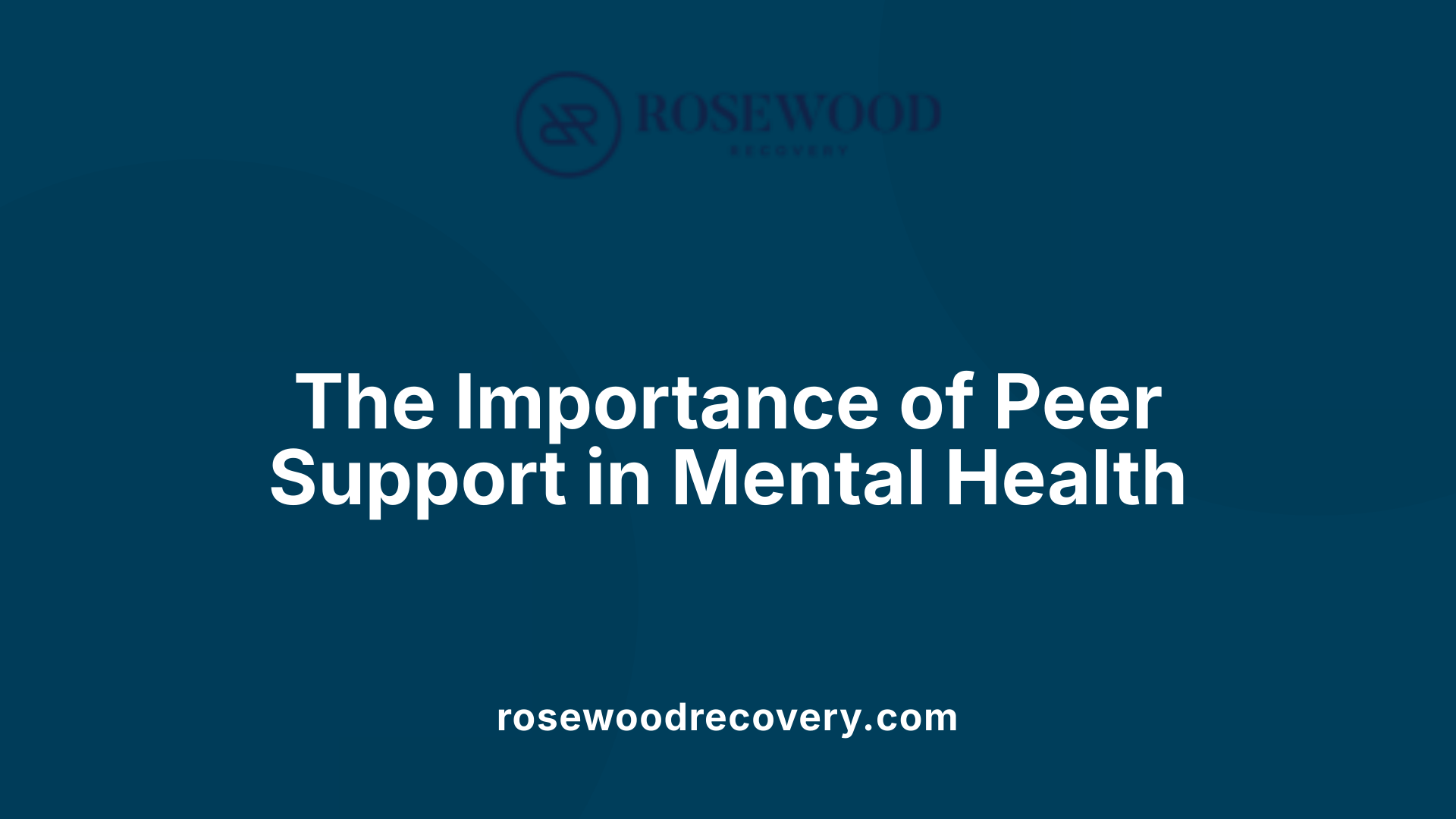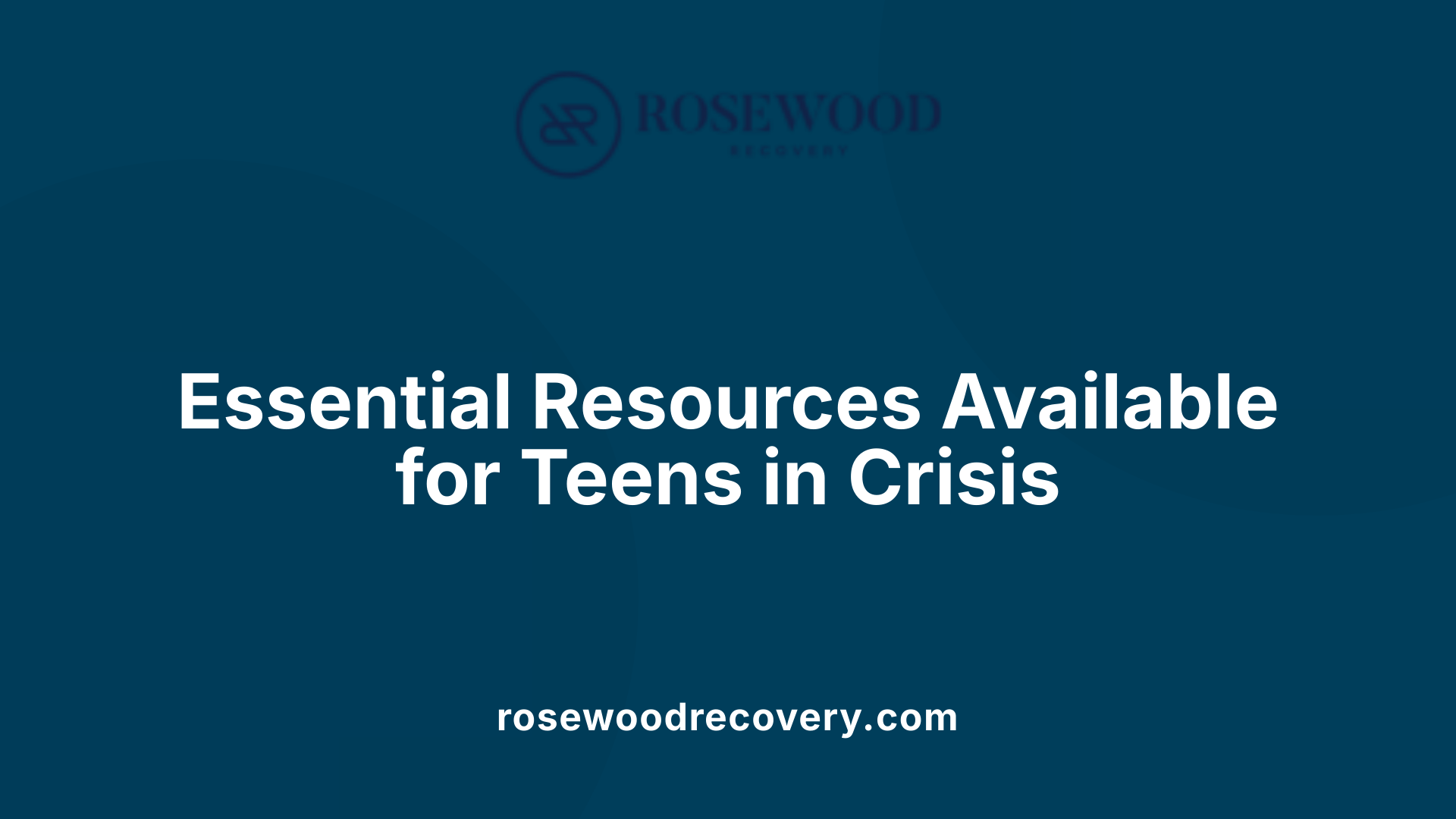Adolescent Services in PA: Supporting Teens with Anxiety and Depression
Providing a Lifeline: A Guide to Mental Health Support for Pennsylvania Teens

Understanding the Mental Health Landscape for Adolescents in PA
In Pennsylvania, addressing the mental health needs of adolescents struggling with anxiety and depression is paramount. Recent surveys, such as the Pennsylvania Youth Survey, underscore the urgency of the situation. Nearly 38% of students report feeling persistently sad or depressed, highlighting a statewide call-to-action. This article delves into the myriad resources and services available for teens and their families, offering guidance, support, and hope.
Therapy and Treatment Programs for Teens

What types of therapy and treatment programs are available for teenagers with anxiety and depression?
Teenagers facing anxiety and depression can access a variety of therapeutic options tailored to their unique needs. Cognitive Behavioral Therapy (CBT) is a widely utilized approach designed to help adolescents identify and modify unhealthy thought patterns and behaviors. This evidence-based practice supports teens in developing healthier coping strategies.
For those requiring more intensive care, structured settings such as Partial Hospitalization Programs (PHP) and Intensive Outpatient Programs (IOP) are essential. These programs are specifically designed for young individuals who may struggle to manage their mental health challenges in less structured environments. They offer comprehensive support while enabling teens to maintain some level of normalcy in their daily routines. For instance, PHPs provide intensive treatment during the day and allow adolescents to return home each night.
Within Pennsylvania, facilities like UPMC Western Behavioral Health and Embark Behavioral Health offer these programs, reinforcing the critical need for specialized mental health support. As mental health issues escalate, with statistics indicating that 1 in 5 teens contemplates suicide, the urgency to connect youth with appropriate care is paramount. Parents should prioritize mental wellness alongside academic pursuits to promote overall health in their teenagers' formative years.
| Therapy Type | Description | Target Group |
|---|---|---|
| Cognitive Behavioral Therapy | Focuses on changing negative thought patterns and behaviors. | Teens dealing with anxiety/depression |
| Partial Hospitalization | Intensive daily treatment with nightly home stays. | Adolescents needing structured support |
| Intensive Outpatient | Regular therapy sessions with a flexible schedule. | Teens requiring comprehensive care |
Parental Involvement: A Key Component of Support

How can parents support their children dealing with anxiety and depression?
Parents play a critical role in supporting their children as they navigate anxiety and depression. One of the first steps is fostering open communication. By creating an environment where children feel safe sharing their feelings, parents can listen without judgment and validate their child's experiences. This approach reassures young individuals that their feelings are acknowledged and understood.
Another significant aspect is education about mental health. Parents should equip themselves with knowledge about the signs and symptoms of mental health issues. The more they understand, the better they can support their child. Online resources, community workshops, and mental health organization websites offer valuable information that can demystify these issues and empower parents.
Encouraging healthy coping strategies is equally important. Activities like physical exercise, mindfulness practices such as yoga or meditation, and creative outlets such as art or music can serve as excellent coping mechanisms. These approaches not only help manage stress but also promote overall well-being.
Additionally, seeking professional help together is paramount. Whether it’s counseling or family therapy, having a mental health professional can provide both the child and parents with effective tools and strategies to navigate these challenges. Through combined efforts, families can foster resilience and healing in their children, guiding them toward healthier lives.
Harnessing Peer Support for Positive Outcomes

What is peer support and how does it help with depression and anxiety?
Peer support is a valuable resource where individuals with similar experiences come together to provide mutual help and guidance. This is particularly relevant for those facing mental health challenges such as depression and anxiety. Research has shown that peer support interventions can significantly reduce depressive symptoms, with a reported pooled standardized mean difference of -0.59 when compared to standard care. This suggests a notable improvement for individuals engaged in peer support settings.
Peer support is highly adaptable. It can take the form of weekly gatherings, intensive sessions, or even online support platforms. Such flexibility allows it to cater to diverse needs, making it accessible for a wider audience.
Interestingly, studies indicate that peer support can be as effective as group cognitive behavioral therapy (CBT). This positioning allows peer support to serve as a feasible alternative in situations where traditional therapies might not be readily available, especially within community contexts or for underserved populations.
Benefits of peer support
The benefits of peer support extend beyond symptom reduction. Participants often experience increased feelings of belonging, understanding, and validation. These connections can contribute to improved emotional resilience and coping strategies, which are critical for teens navigating the complexities of mental health issues.
Comparing with traditional therapies
When we compare peer support with traditional therapies, we observe that while both can yield beneficial outcomes, they often serve different roles in the healing process. Traditional therapies, such as individual or family therapy, typically provide a clinical approach led by trained professionals, while peer support emphasizes lived experiences and camaraderie, creating a less intimidating environment for sharing emotional struggles.
Enhancing access to care through peer networks
In Pennsylvania, peer support networks for adolescent mental health are vital in enhancing access to care. Programs providing peer-led support not only fill gaps in mental health services but also foster a culture of openness, encouraging young people to seek help. Initiatives such as youth support groups have the potential to reach a broader demographic, contributing to overall mental well-being. Ultimately, integrating peer support within existing mental health frameworks could provide a more comprehensive support system tailored to the needs of adolescents struggling with mental health issues.
Special Programs Addressing Adolescent Mental Health Challenges

What mental health challenges do specialized adolescent programs address?
Specialized adolescent programs are essential in addressing various mental health issues faced by youth today. With rising incidences of anxiety and depression significantly affecting teens since 2016, nearly 49.5% of adolescents face mental health disorders at some point in their lives. These programs target key symptoms such as low energy, social withdrawal, and suicidal thoughts.
The alarming increase in the number of suicides among young people highlights the urgent need for comprehensive support systems. Programs like the 988 Suicide and Crisis Lifeline offer critical resources for immediate help nationwide, including text support available by texting 'Brave' to 741-741. Furthermore, the Crisis Text Line stands out as a vital tool, providing confidential support 24/7.
Support for suicidal thoughts
Many organizations in Pennsylvania, such as New Directions Mental Health and UPMC Western Behavioral Health, focus on youth battling chronic suicidal thoughts. These programs provide a safe space for adolescents to talk about their struggles, often integrating peers into their therapy sessions. For instance, the DBT Multifamily Skills Group specifically caters to teens grappling with self-harm and suicidal ideation, fostering resilience through shared experiences.
Universal screening initiatives
Overall, universal screening initiatives for depression, suicide risk, and other mental health concerns are critical for early intervention. Programs like NAMI's "Say It Out Loud" aim to raise awareness concerning mental health issues among teens aged 14-18. Developing an integrated mental health service infrastructure encourages access to necessary care and timely interventions for youth in Pennsylvania.
Comprehensive Resources for Adolescents Facing Mental Health Issues

What are some comprehensive resources available for young people dealing with mental health issues?
Comprehensive resources for adolescents facing mental health challenges are critical in providing support, especially during crisis situations. A variety of helplines, support groups, and educational materials are available in Pennsylvania for youth aged 16 to 24.
Helplines and Crisis Services
- 988 Suicide and Crisis Lifeline: A vital resource for immediate help, available 24/7 for adolescents facing crises, offering compassionate support and guidance.
- Crisis Text Line: Teens can text 'Brave' to 741-741 for crisis support, ensuring accessibility for those in urgent need.
- Chester County Teen Talk Line: Specifically for ages 12-18, enabling teens to talk to peers about their feelings, which can be invaluable for emotional support.
Support Groups and Educational Materials
- NAMI Main Line PA: Offers resources and guides for parents and caregivers of youth with mental health concerns, fostering awareness and understanding.
- Youth Services Inc.: Provides emergency shelter and support services for homeless and runaway teens, underscoring the need for safe environments.
- Creative Healing: Designed for high-risk adolescents, it offers group therapy focused on navigating emotions related to anxiety and depression.
Professional Associations Offering Mental Health Resources
- Mental Health Facilities in Pennsylvania: This page lists various clinics specializing in treating common mental health disorders like anxiety and depression, ensuring widespread access.
- Penn State Health Children's Hospital: Offers a broad range of mental health services and therapies focused on family-centered care. Programs include individual and group therapies as well as Telephonic Psychiatric Services (TiPS) for seamless care.
These resources collectively create a support network, guiding adolescents in managing mental health issues and facilitating their journey toward recovery in Pennsylvania.
Leveraging Local and State Support Systems

What local and statewide initiatives support adolescent mental health?
Pennsylvania has established a range of initiatives to promote adolescent mental health. One critical resource is the 988 Suicide and Crisis Lifeline, which connects youth in crisis to immediate support. This service is complemented by local organizations like UPMC Western Behavioral Health, providing specialized treatment programs for various mental health issues, including anxiety and depression.
Additionally, mobile care innovations offer solutions for adolescents living in rural areas, ensuring they have access to necessary services without long travel distances.
The Creative Healing center in Flourtown and Wayne emphasizes evidence-based practices tailored for high-risk youth, focusing on the unique challenges faced by adolescents. These diverse facilities underscore Pennsylvania's commitment to mental health.
Moreover, educational initiatives such as NAMI Main Line's comprehensive mental health screening programs work towards prevention and early identification. This multi-faceted approach ensures there is a robust network of support available, aimed at helping adolescents and their families navigate mental health challenges effectively.
Looking Ahead: Building a Supportive Environment for Pennsylvania Teens
As mental health challenges continue to affect adolescents, it is crucial for Pennsylvania to expand and strengthen its support systems. By fostering collaboration among healthcare providers, schools, parents, and community organizations, we can create an environment where every teen has access to the resources they need to thrive. With comprehensive programs and innovative strategies, Pennsylvania is poised to not only address the current mental health crisis but also to equip its youth with the resilience and skills necessary for a healthier future.
References
- Resources for Transition Age Youth (16-24) | NAMI MAIN LINE PA
- Mental Health Resources to Support Adolescents
- Child and Teen Therapy - New Directions Mental Health
- Mental Health Resources for Teens and Kids in Philadelphia | Youth ...
- Treatment Center for Teens & Family in Pennsylvania and Minnesota
- Child & Teen Mental Health Programs | UPMC Western Behavioral ...
- Teen Support Groups in Pennsylvania - Psychology Today
More Articles
Recovery Begins Here
Click below to get in touch and schedule a consult call with our team to begin your journey towards happiness and freedom.
Rosewood Recovery does not discrimate against any person because of the race, color, religious creed, ancestry, age, sex, sexual orientation, gender identity, national origin, handicap or disability or the use of a guide or support animal because of the blindness, deafness or physical handicap.



%252520(1).jpeg)

